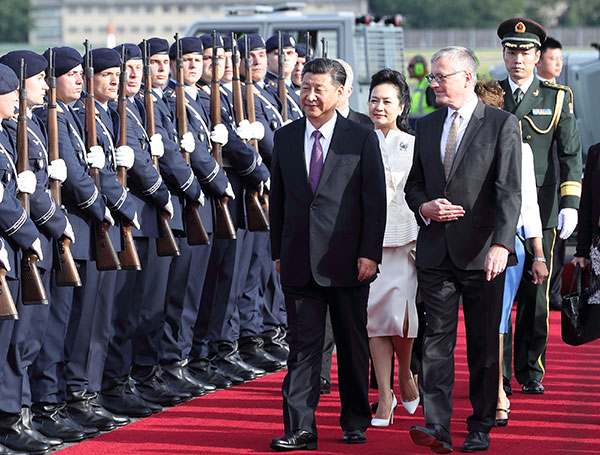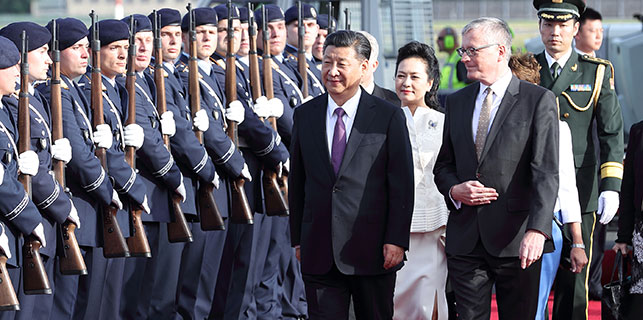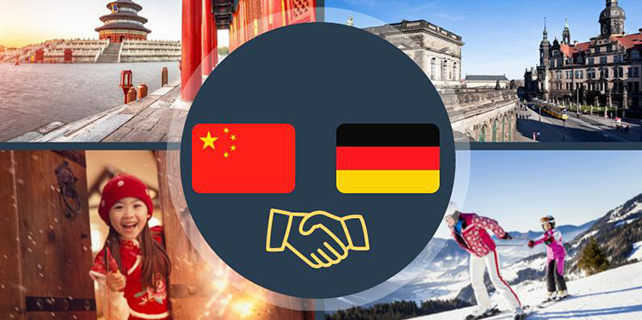China-Germany ties a model for cooperation
 |
|
President Xi Jinping and his wife Peng Liyuan are greeted upon their arrival in Berlin, Germany, July 4, 2017. [Photo/Xinhua] |
President Xi Jinping's on-going state visit to Germany, which coincides with the 45th anniversary of the establishment of diplomatic ties between China and Germany, is expected to not only lift bilateral ties to a new level, but also help revive the trend of globalization and trade liberalization.
With the world facing growing uncertainties, the cooperation between China and Germany has assumed global significance, as greater interaction between the two countries will give a shot in the arm not only to China's relationship with Europe as a whole, but also the global economy.
Over the years, China and Germany have set up more than 70 dialogue and cooperation mechanisms covering a wide range of fields, and, thanks to their joint efforts, their practical cooperation is now "robust", as Xi noted on his arrival, and it plays an exemplary role in boosting Europe's cooperation with China.
Prior to his arrival in Berlin, Xi paid a state visit to Russia, where he met with President Vladimir Putin in Moscow. One eye-catching similarity in China's interaction with Russia and Germany in recent years has been the frequency of the high-level contacts and exchanges, which have helped boost trust and cooperation.
And thanks to this, China's relationships with Germany and Russia are in very good shape. Given that Xi is also scheduled to attend the upcoming G20 Summit in Hamburg on Friday and Saturday, his meetings with the leaders of Russia and Germany have provided a good opportunity for China to better coordinate its stance with the two important G20 members, paving the way for the summit to achieve people's hopes for positive outcomes and the injection of fresh impetus into global growth.
As Xi rightfully pointed out at the 2017 World Economic Forum at Davos earlier this year, economic globalization is a double-edged sword. But despite globalization encountering difficulties, countries around the world should work together to counter protectionism and seize every opportunity to promote growth through innovation and structural reforms.
The G20, as the premier forum for international economic cooperation, can forge a shared will to achieve these aims by following through on the consensus achieved last September at the G20 Hangzhou Summit, when participants agreed to make significant contributions to promoting strong, sustainable, balanced and inclusive global growth.
In this respect, China and Germany, as the previous and current G20 chair, shoulder the important responsibility of ensuring the Hamburg summit delivers on the vision and spirit of partnership it displayed then.






















